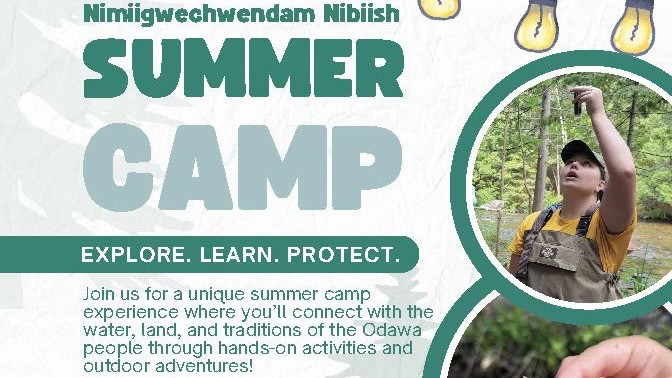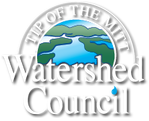Important Documents in our Resource Library for Educators
| Title | Link |
|---|---|
| 2022 Watershed Academy Brochure |
School Programs

Nimiigwechwendam Nibiish Summer Camp
Details Explore. Learn. Protect.Join us for a unique summer camp experience where you’ll connect with the water, land, and traditions of the Odawa people through hands-on activities and outdoor adventures!
School and Small Group Tours
The Watershed Discovery Center is excited to offer free educational tours for local schools and homeschool groups! Each tour lasts approximately 1.5 hours and includes an engaging, age-appropriate exploration of our discovery center, followed by a hands-on activity or craft to reinforce the concepts covered during the visit.
Our tours are best suited for groups of up to 12 students due to space limitations. For larger groups, we can accommodate up to 20 students by splitting the group into smaller sections. Tours are designed for grades 3-5, but we are happy to work with educators who are interested in tours for other age groups—just contact us to discuss your needs!
Please use the form below to schedule your tour. To learn more or to get help scheduling a tour, please contact our office. We look forward to sharing the wonders of our local watersheds with your students!
Tour Topics
Adaptations
Lesson Description:
In this interactive lesson, students will explore the physical and behavioral adaptations of native Northern Michigan species that enable them to survive in their aquatic habitats. Students will observe live fish in aquariums, examine insect specimens and connect these adaptations to local ecosystems like Lake Michigan and nearby rivers. Students will discuss how these adaptations help organisms interact with their environment and respond to environmental challenges.
Aquatic Ecosystems
Lesson Description:
In this hands-on lesson, students investigate native fish in aquariums, explore biotic and abiotic factors of aquatic ecosystems, and connect their discoveries to local habitats like Lake Michigan. They learn how human actions and natural processes impact water quality, wildlife, and overall ecosystem health.
Earth Systems and Water
Lesson Description:
Students will investigate how water moves through a watershed and interacts with the geosphere, hydrosphere, atmosphere, and biosphere. Using hands-on activities like a magnet board watershed map, a groundwater model, and an AR Sandbox, they will explore water flow and human impact. Through games and discussions, they will develop an understanding of water’s role in the environment.
Human Impacts
Lesson Description:
Students will explore how human activities affect water quality and discuss methods to protect water resources. They will engage with a watershed model, create a mural, and observe fish tanks to understand the consequences of pollution and conservation efforts.
Invasive Species
Lesson Description:
Students will explore how human activities affect water quality and discuss methods to protect water resources. They will engage with a watershed model, create a mural, and observe fish tanks to understand the consequences of pollution and conservation efforts.

